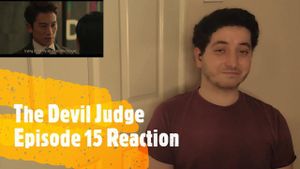South Korea's political stage has become embroiled in rivalry as two prominent figures, Lee Jae-myung, the leader of the Democratic Party, and Kim Ki-hyun, head of the People Power Party, engage in contentious exchanges as the nation approaches its upcoming elections. The atmosphere is charged, reflecting not only the personal ambitions of the two leaders but also diverging ideologies and strategies as they vie for the hearts and minds of voters.
Lee Jae-myung, known for his charismatic approach and progressive policies, emphasizes themes of integrity and transparency within public service. Recently, he asserted, "The people deserve leaders who act with integrity and transparency." This line, reported by The Korea Herald, showcases his commitment to governance reform and accountability, aiming to distinguish himself from his opponents.
On the other hand, Kim Ki-hyun adopts a contrasting tone, often positioning himself as the voice of reason against the backdrop of political attacks. At a recent debate, he affirmed, "We must focus on policies over personal attacks," according to Yonhap News. His approach highlights his strategy to appeal to voters tired of divise rhetoric and seeking constructive dialogue on matters affecting the country.
The political duel is also marked by intense campaigning tactics, primarily through effective use of social media, public rallies, and debates. With just weeks remaining before the elections, both leaders have increased their visibility, aiming to galvanize support among undecided voters and energize their bases. This high-stakes environment has prompted increased scrutiny, both from opponents and the public.
Recent events have seen both leaders face criticisms and controversies, affecting their public image. Lee's past decisions have been revisited by his rivals, prompting him to defend his record and clarify his stance on key issues. Conversely, Kim has faced backlash over his party's response to national issues, which detractors claim lacks urgency. These dynamics add layers to their political battle, shaping public perceptions as they navigate the shifting tide of voter sentiments.
The backdrop of their rivalry reflects broader trends within South Korean politics, particularly increasing polarization along ideological lines. Voter engagement, especially among younger demographics, is pivotal. Each leader’s appeal to these young voters has become central to their campaigns. Lee Jae-myung’s policies, favoring social justice and economic reform, resonate with many seeking progressive change. Meanwhile, Kim Ki-hyun advocates for stability and traditional values, which attracts voters who prioritize continuity over change.
The effects of this duel are being felt nationwide as the electorate contemplates the future direction of the country. Given the serious concerns surrounding economic stability and social issues, voters are weighing their options carefully. The political climate is characterized by heightened scrutiny of candidates’ character and integrity.
Polling indicates fluctuational support for both candidates, reflective of their ability to address pressing issues effectively. Analysts suggest the outcome of this rivalry might not only decide the future of both political parties but could also reshape the broader sociopolitical fabric of South Korea.
With the clock ticking down to the elections, the tension between Lee Jae-myung and Kim Ki-hyun will only intensify. Voter turnout and engagement will be key determining factors. Should either candidate fail to connect meaningfully with the electorate, particularly the youth, the consequences could be dire for their political futures.
This rising tension underlines the importance of civil political engagement as both candidates prepare for the final stretch. The ability to transcend personal attacks and focus on substantive policy discussions will not only reflect their leadership capabilities but could very well define the upcoming electoral outcome.



